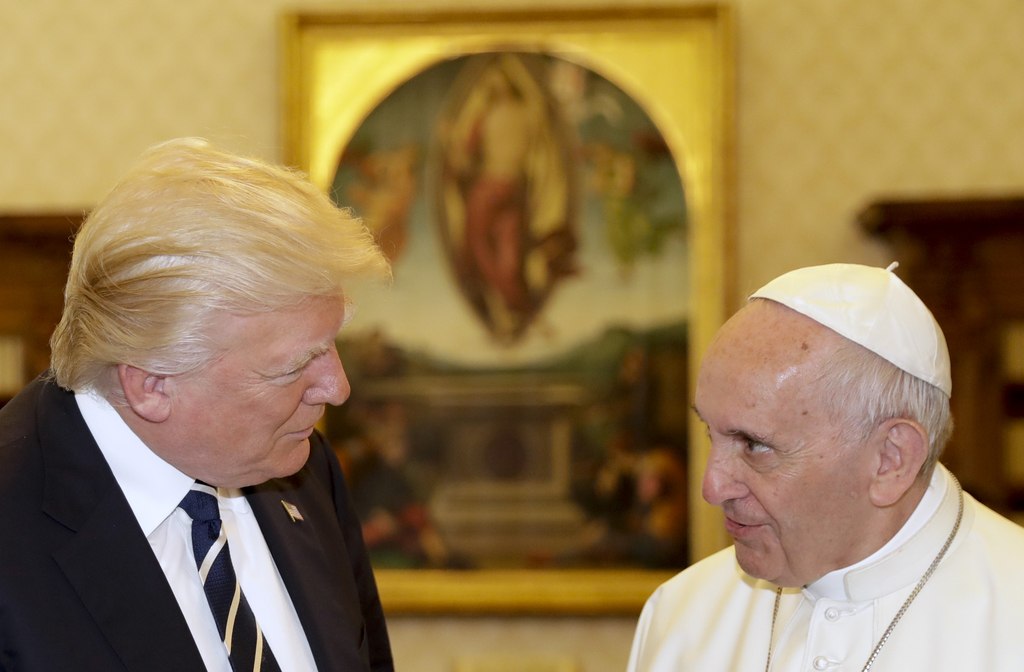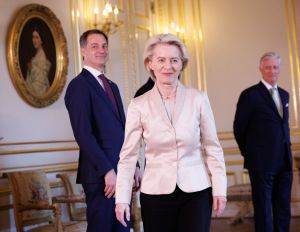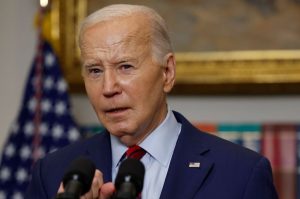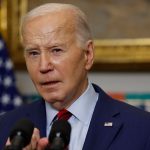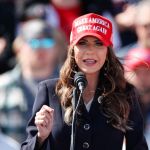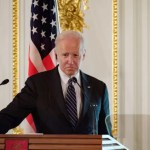A solution ‘must be found’ in order to halt the Trump administration’s policy of separating migrant children from their families, according to an American cardinal.
That’s hardly news, you may say: the US conference of bishops is united in outrage at this cruel practice. But the cardinal I’m quoting is Raymond Leo Burke, former Archbishop of St Louis, a theological and political conservative who is the closest thing the president has to an ally in the American hierarchy.
Cardinal Burke therefore finds himself in an unfamiliar place: on the same side of the fence as the man who sacked him from a top-ranking post in the Vatican, Pope Francis. Burke has effectively endorsed the Pope’s condemnation in an interview with Reuters of the ‘immoral’ treatment of migrant children. President Trump should reflect on what he has done: the wretched plight of these children, captured in horrifying photographs, has alienated the only senior US Catholic churchman who publicly shares his view that American cannot permit ‘the indiscriminate welcome of immigrants to our nation.’
There are several dimensions to Trump’s blunder, quite apart from its worst consequence, the suffering of the children. Conservative Catholics who voted for him with a heavy heart in 2016 will find their consciences even more troubled come the mid-terms. Meanwhile, he has lent moral force to the arguments of one of his most powerful critics: a man who can (almost) match him for careless and histrionic rhetoric, and who – like Trump – displays convenient lapses of memory when asked tricky questions.
I’m referring to Pope Francis, whom Ross Douthat of the New York Times has compared (but not equated) to Donald Trump: both men have pushed the limits of their offices, he says, turning Rome and Washington respectively into ‘paranoid, jumpy’ places, ‘full of ferment and uncertainty.’
Douthat, a Catholic who is profoundly respectful of the papal office, tiptoes around the analogy. I’m less inclined to do so after reading Francis’ wide-ranging Reuters interview, in which his heartfelt denunciation of the separation of small children from their parents is undermined by Trumpian hyperbole on the related subject of European immigration.
We don’t have the full text of the interview – why not? – but we do know that the Pope said that ‘creating psychosis is not the cure’ for the continent’s immigration crisis. The implication is not only that populists are setting out to create psychosis, but also that anti-immigrant sentiment is psychotic.
You can accuse the Catholic Church of many things – for example, covering up the grave indiscretions of the former Cardinal Archbishop of Washington DC, now accused of abusing children – but using language imprecisely is not one of them. The Church learned this precision the hard way: Christians have slaughtered each other over rival credal formulae differing by little more than a syllable.
Pope Francis, like Humpty Dumpty, makes words mean whatever he chooses them to mean. He has taken to accusing his critics of ‘neo-Gnosticism’ and ‘neo-Pelagianism’ in ‘ways that do not easily square with their technical meaning’, as the scholarly Vatican correspondent Christopher Altieri puts it. Altieri, like Douthat, employs diplomatic language. Another way of putting it would be to say that Francis uses words he doesn’t understand. He also has an imperfect grasp of the meaning of ‘calumny’ and (surprisingly for a Jesuit) ‘casuistry.’
Now we can add psychosis to the list. This is a serious mental illness that typically involves hallucinations and/or delusions. The diagnosis is not to be thrown around carelessly, least of all by the spiritual father of countless Christians who are legitimately angry about the European Union’s mishandling of the migration crisis – and the criminal behaviour of some of the bogus refugees in their midst.
‘Italy has been receiving immigrants in numbers far beyond what the nation can support.’ That is the plain truth, spoken by Cardinal Burke in the same interview in which he called for an end to the enforced separation of migrant families at the Mexican border. To be fair to Francis, he has in the past acknowledged the new burden imposed on poor Italian families. But now he is back on the same populist soapbox from which he accused the media of ‘coprophilia’ – an abnormal interest in excrement
I don’t want to keep pushing the Francis-Trump analogy, even though it causes delicious indignation among those papal hagiographers masquerading as journalists. But the Pope doesn’t make it easy to resist the temptation.
Elsewhere in the Reuters interview, he claims that he learned of the famous dubia letter, in which he was challenged by conservative cardinals, ‘from the newspaper.’
This is literally incredible. The letter was sent to Francis long before the cardinals, maddened by his petulant refusal to answer them, made it public. As an excuse it is about as plausible as the Pope’s claim that he didn’t know about allegations of Chilean child abuse, despite the fact that the details were hand-delivered to him by Cardinal Sean O’Malley, his top adviser on clerical abuse. Or, to cite another example, his insistence that he ‘didn’t remember’ the footnote in his apostolic exhortation Amoris Laetitia that opened to the door to the reception of Communion by divorced-and-remarried Catholics.
Donald Trump, too, is plagued by occasional memory loss, the occasions being when he’s asked about something he would rather not discuss. Perhaps it’s a sign of age: he is 72, the Pope 81. Or perhaps it’s a sign of something else.
